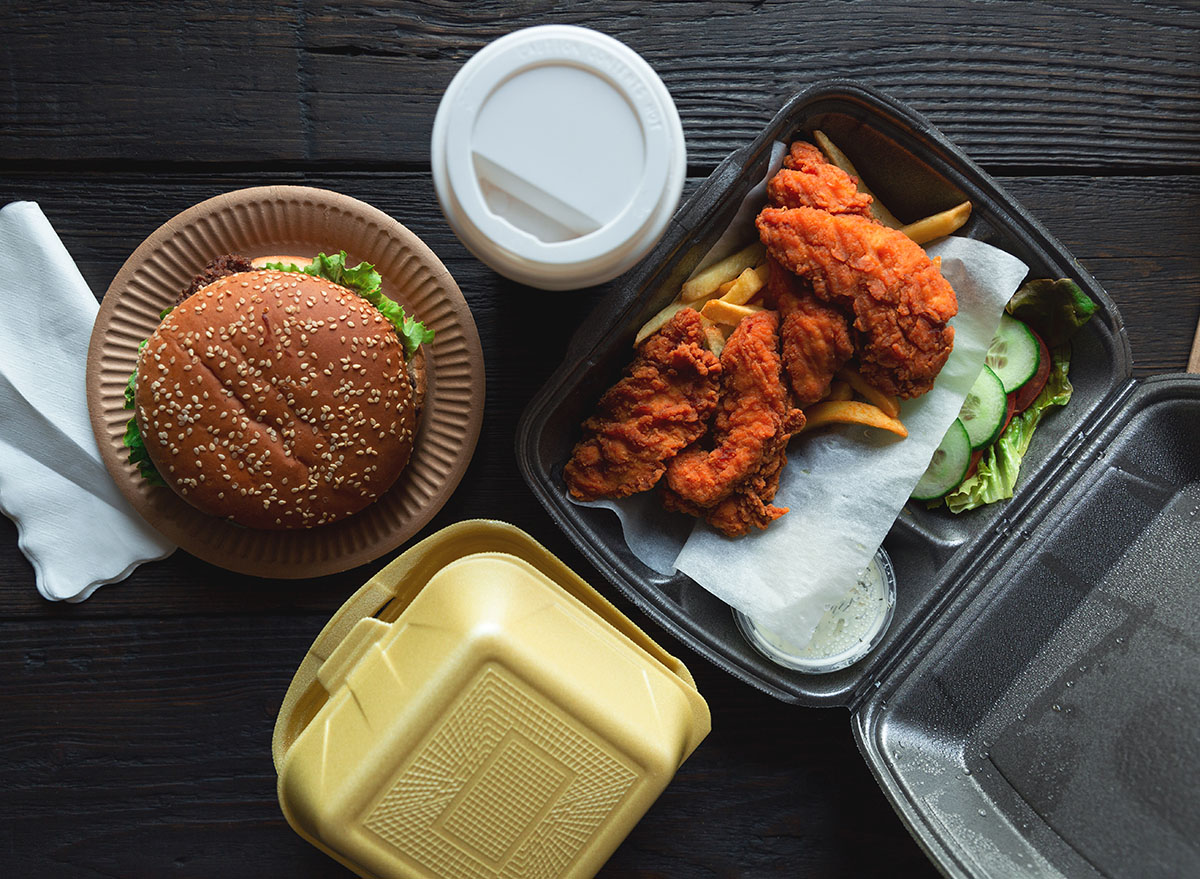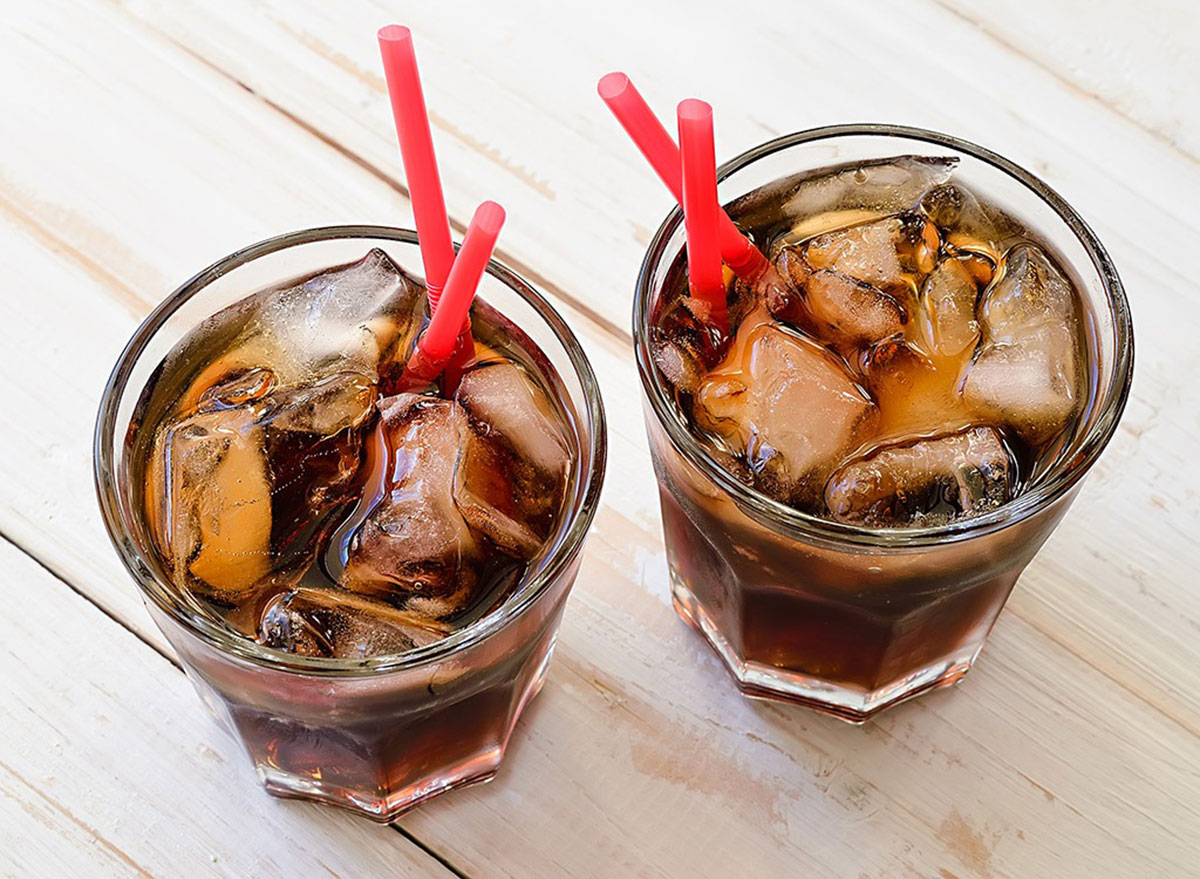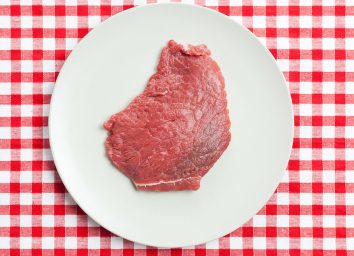These Foods May Make the COVID-19 Vaccine Less Effective, Says New Study

Past scientific studies have concluded that the one thing that makes any vaccine less effective—whether you're talking about a vaccine for the flu, hepatitis B, rabies, or other conditions—is a patient's obesity. According to the Kaiser Foundation, this is largely due to the impact of excess weight on the body's immune response. "A healthy immune system turns inflammation on and off as needed, calling on white blood cells and sending out proteins to fight infection," the organization explains. "Vaccines harness that inflammatory response. But blood tests show that obese people and people with related metabolic risk factors such as high blood pressure and elevated blood sugar levels experience a state of chronic mild inflammation; the inflammation turns on and stays on." In other words, the vaccine doesn't work as well.
Making matters worse, several studies have shown that those suffering from obesity are among the most affected by severe complications resulting from COVID-19. "As [body mass] increases," the CDC bluntly states, "the risk of death from COVID-19 increases."
But, according to a brand-new study conducted by researchers from Ohio State University and published in the journal Advance Social Sciences & Humanities, there are things you can do to prime your body for the vaccine starting now. "While we wait for our turn to get vaccinated against SARS-CoV-2, we could—and probably should—use the time to make sure we bring our healthiest emotional and physical selves to the treatment," say the researchers from Ohio State. Their study looked at 49 previous vaccine studies that were conducted over the past three decades.
According to their analysis, stress is a major factor as it pertains to the health of your immune system, and it's important that people who haven't taken the vaccine yet take steps to gain better control of their "disrupted routines and social lives" that can set back healthier behaviors.
"The power to make improvements that give us the best chance for a healthy response to the coronavirus vaccine is almost completely in our control," the researchers concluded. "Managing stress through exercise and mindfulness meditation, getting enough sleep, quitting or curbing tobacco use…—even in the short term, right around the time of vaccination—could influence how our bodies respond, the evidence suggests."
The research team emphasizes that your diet plays a major role here as well. If you're looking to improve your overall health in advance of the vaccination to maximize your body's response, you need to adopt a diet higher in whole foods filled with fiber and drink more water daily—and definitely avoid the following foods we've listed below as best you can.
After all, as Shenggen Fan, Chair Professor and Dean of Academy of Global Food Economics and Policy at China Agricultural University, recently wrote in a widely spread editorial, leading a sedentary lifestyle and eating "ultra-processed foods with high sugar and fats" is known to drive obesity, which could affect how your body responds to the COVID-19 vaccine. So read on, and for more tips for eating healthier starting now, make sure you read up on our complete list of the 100 Worst Foods on the Planet.
Sugary Drinks

"The optimal intake of these drinks is zero," Vasanti S. Malik, ScD, a research scientist at the Harvard T.H. Chan School of Public Health, once told The New York Times. "They have no health benefits."
In case you're not aware, the insidious side effects of drinking too many sodas and other sugary drinks includes weight gain, higher diabetes risk, tooth decay, excess fat around your midsection, joint pain, kidney health issues, greater heart disease risk, higher cholesterol, poor gut health, hormone issues (chiefly regarding leptin, your hunger hormone), memory loss, dehydration, hair loss, bloating, and an increased risk of death—to name a few.
Processed Foods

Processed foods are defined as "food that's been changed or made a bit different from its natural form" by factory processing, says Torey Armul, R.D., a spokesperson for the Academy of Nutrition and Dietetics (AND). "Highly-processed foods tend to be made of too many of the wrong ingredients, like white flours, white sugars, and unhealthy fats. And they tend to have additives that increase fat, sodium, and sugar levels to increase shelf life or palatability."
Among the worst offenders are potato chips, donuts, cereals that are covered in added sugars, and white bread.
Energy Drinks

As Chris Fernandez, B.S., CPT, and CEO of Women's Health Interactive, once told us, energy drinks may well be one of the worst choices you can make. "They are filled with stimulants like caffeine and ephedrine-like derivatives that overload your adrenal glands, make you depend on them for 'energy,' and to top it all off, combine it all with a nice dose of sugar, preservatives, and artificial colors and flavors," he said. "Don't drink them. Just don't."
Fast Food

Fast food is highly processed and filled with extra sugars, fats, and salt. Tehzeeb Lalani, the founder of Scale Beyond Scale, says that "extremely poor quality ingredients are used to cut costs and fast foods are high in salt, fat and sometimes even preservatives."
Alcoholic Beverages

In a 2018 study that linked heavy alcohol use with early death that was published in the journal The Lancet, the authors noted: "Our results show that the safest level of drinking is none." As we've reported, the dangerous side effects of drinking alcohol every day are numerous and include weight gain, as well as a greater risk of heart disease, a greater risk of infertility, osteoporosis, liver damage, and prolong slurred speech. And even if you're a moderate drinker, make sure you're avoiding The Most Dangerous Alcoholic Beverage for Your Body, According to Experts.








